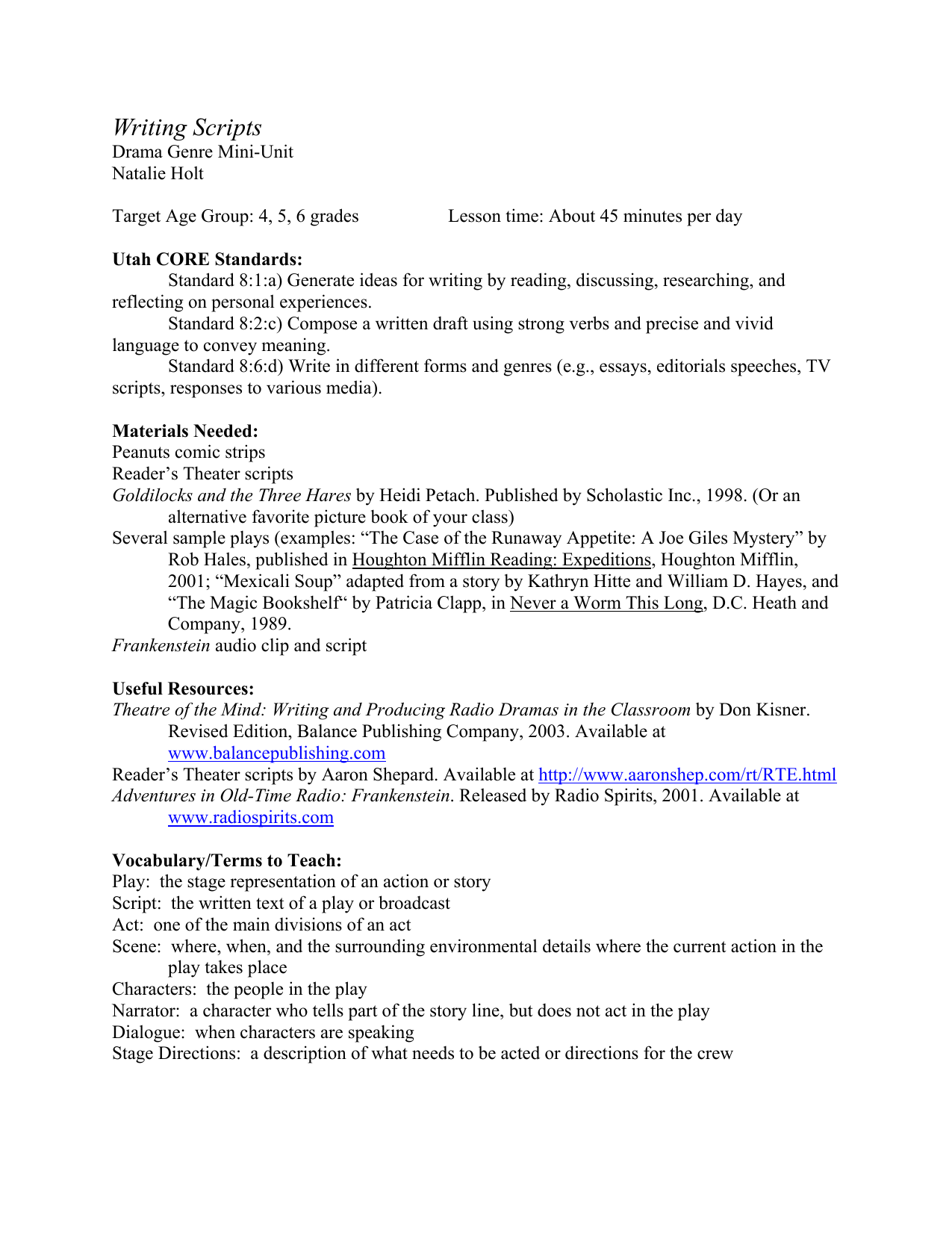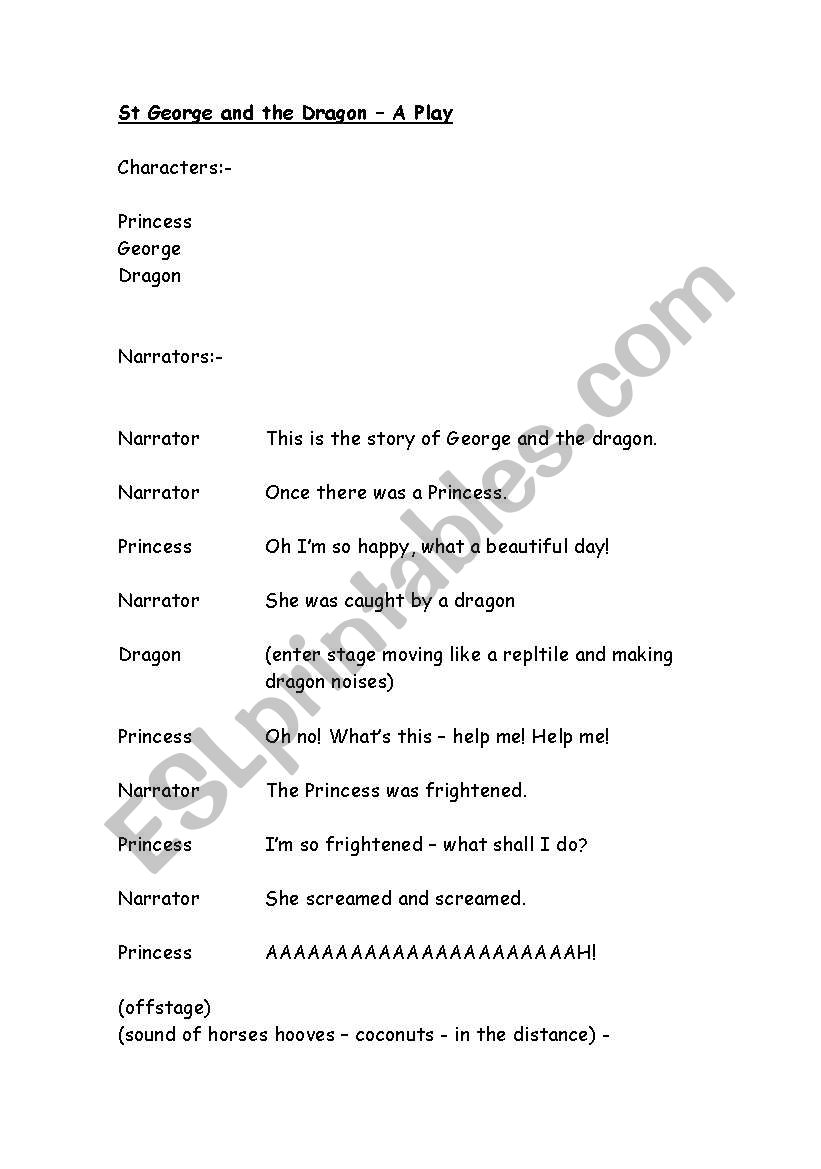
Teachers have to manage different strategies and approaches when of preparing and applying their lessons (Ku ś nierek, 2015). This study aims to examine the implementation of scripted role-plays based on drama strategies to improve seventh grade students’ willingness to participate in speaking activities in English.ĭrama as a strategy for teaching English as a foreign language Baruch (2006) stated that the effectiveness of teach- ing can be enhanced and enriched by applying theatrical role-playing, sometimes in the shape of putting on metaphorical masks. Even though it is not a revolutionary discovery, several pedagogy experts find it is a useful strategy and support its use in the classroom.

This constant pursuit of the most suitable teaching strategy within our teaching context led us to decide to use differ - ent ways of offering students the opportunity to work with English in a non-traditional way known as a drama-based strategy. New strategies for learning a new language have been of great importance, as traditional methods of language teaching have not been enough to provide our students with the best tools to effectively communicate with each other in a society laden with tech- nological devices and digital resources. The Ministry of Educa- tion has also suggested aligning lesson planning with a more integral teaching practice with the help of other subjects in an interdisciplinary way. Within these curriculum changes, the new teaching strategies have focused on a more meaningful, communicative and effective way of learning a foreign language. Over the years, the Ministry of Education has suggested different proposals and strategies the Eng- lish curriculum guidelines have been modified lately due to the importance of a contextualized language teaching practice. Teaching English as foreign language in Chile has been one of the main concerns for our educational system. Palabras clave: Enseñanza de idiomas métodos de enseñaza programas educativos innovaciones pedagógicos teatro estrategias educativas El estudio concluye que los estudiantes están dispuestos a participar en actividades orales basadas en el uso de juegos de roles con guion, lo cual también es coherente con las percepciones de los alumnos sobre la intervención. Además, tuvieron la oportunidad de trabajar colaborativamente con sus pares, en un ambiente seguro y atractivo, de modo que pudieron mejorar sus habi - lidades sociales a medida que cumplían con diferentes funciones. Los estudiantes demostraron gran compromiso con el juego de roles como una forma de aprender inglés. El estudio aborda la voluntad de los estudiantes de participar en actividades de conversación oral en la clase de inglés, antes y después de la implementación de una dramatización, basada en la estrategia pedagógica denominada “juego de roles con guion”. 38 de sus participantes están en séptimo grado. Key words: Language teaching teaching methods educational programmes pedagogical innovations drama educational strategiesĮl presente estudio es el resultado de una investigación realizada en un curso de Inglés como segunda lengua, en una escuela pública chilena, donde el 77% de su población está en riesgo social. This result is also coherent with the students’ perceptions of the intervention. The study concludes that students are willing to participate in speaking activities after the use of scripted role-plays. Participants had the chance to work collaboratively with their peers in a safe and en - gaging environment, improving their social skills as they performed different roles.

The students showed great commitment to scripted role-play as a way to learn English.

The study addresses students’ willingness to participate in speaking activities in English class before and after the implementation of a drama based pedagogy strategy known as scripted role-play. 38 of the participants are seventh grade students.

The following study is a result of an action research carried out in an English as a fo - reign language class in a subsidized Chilean school, where 77 % of its population is at social risk.


 0 kommentar(er)
0 kommentar(er)
